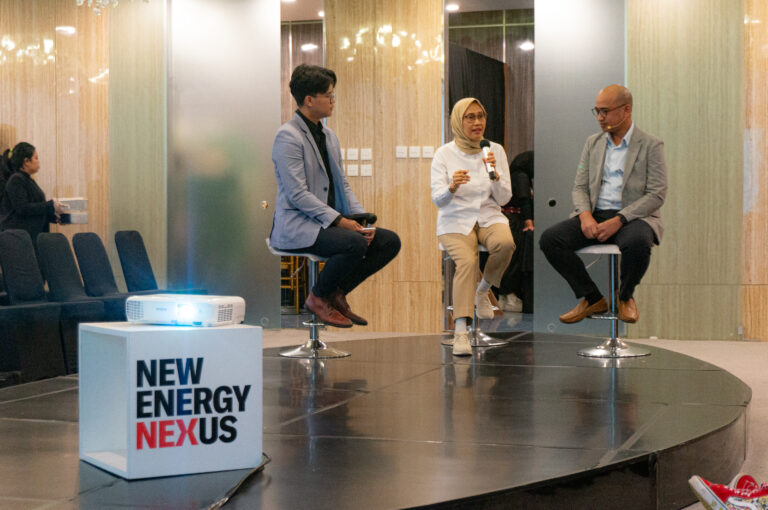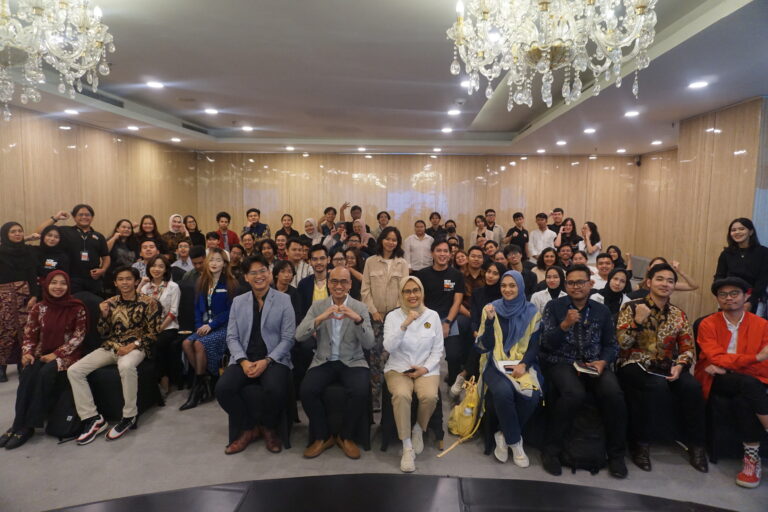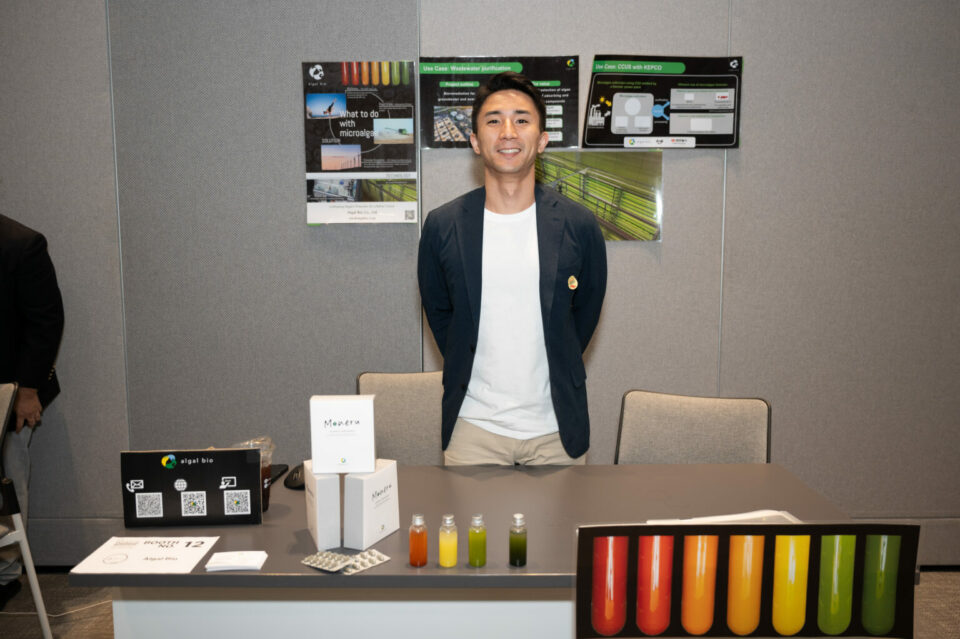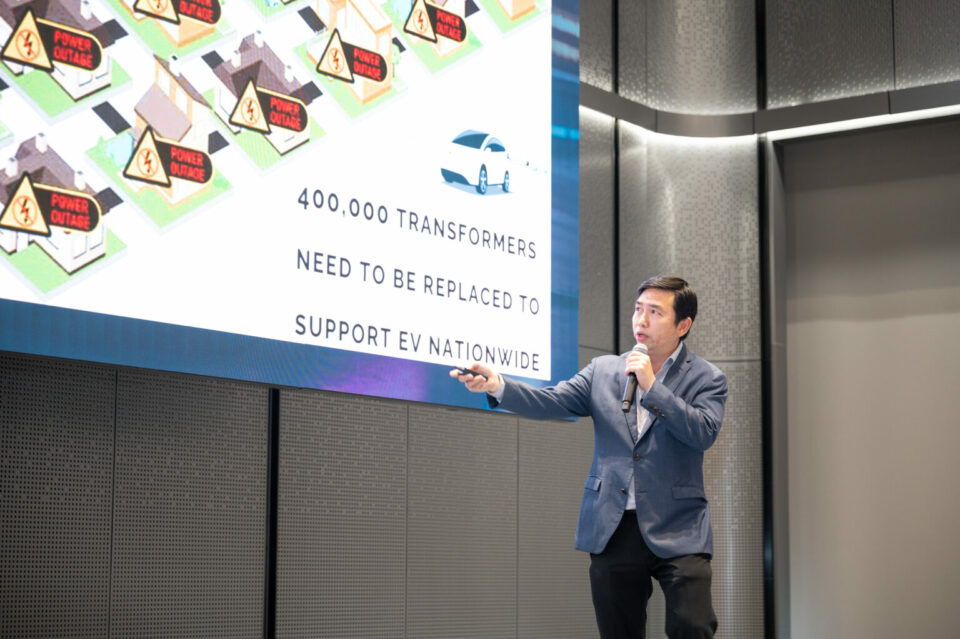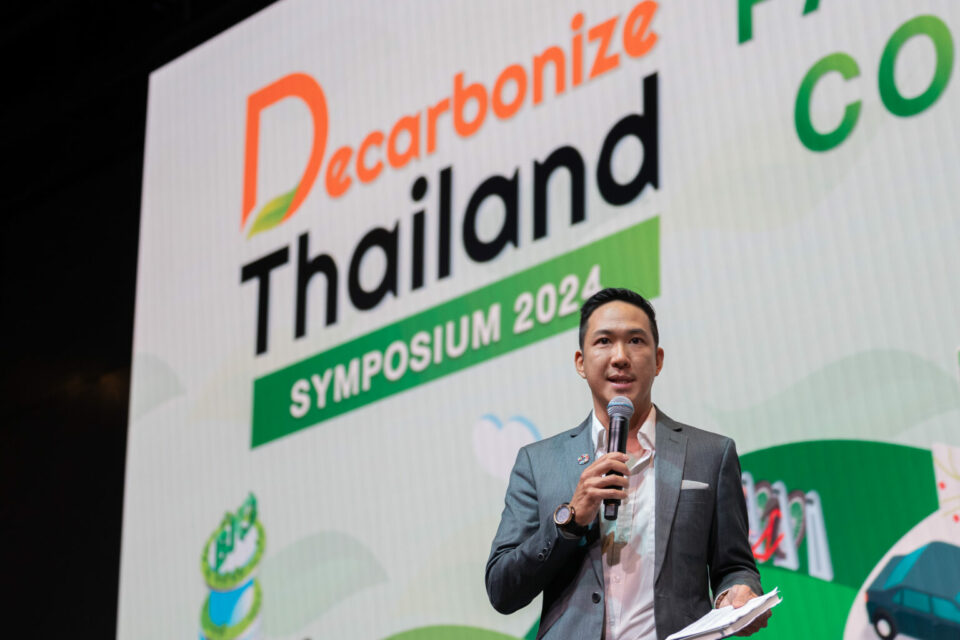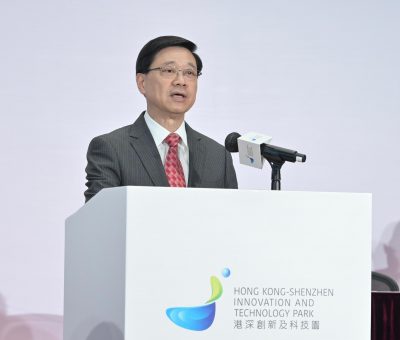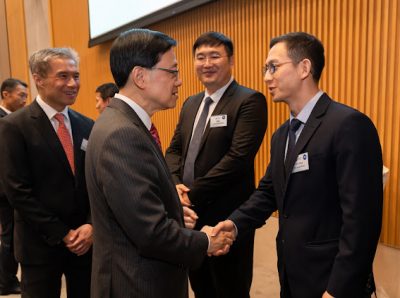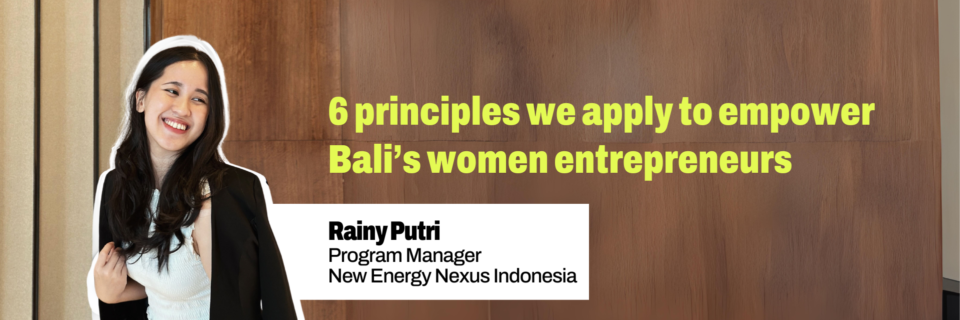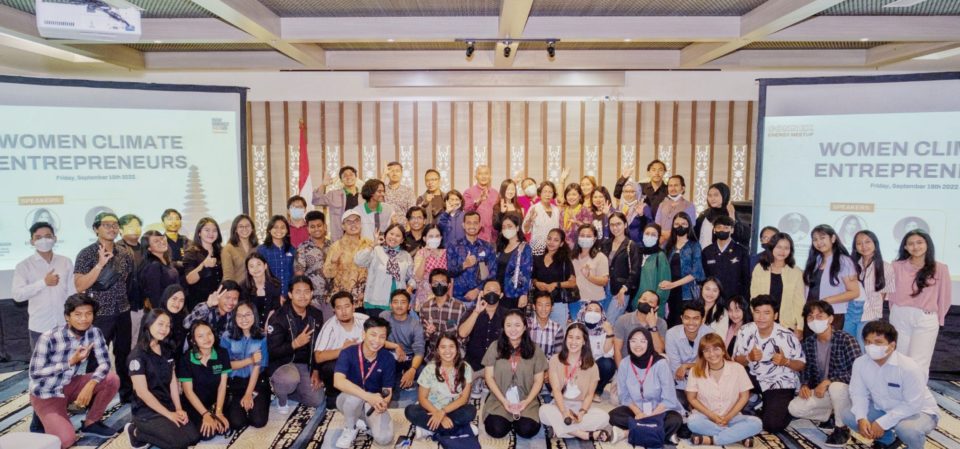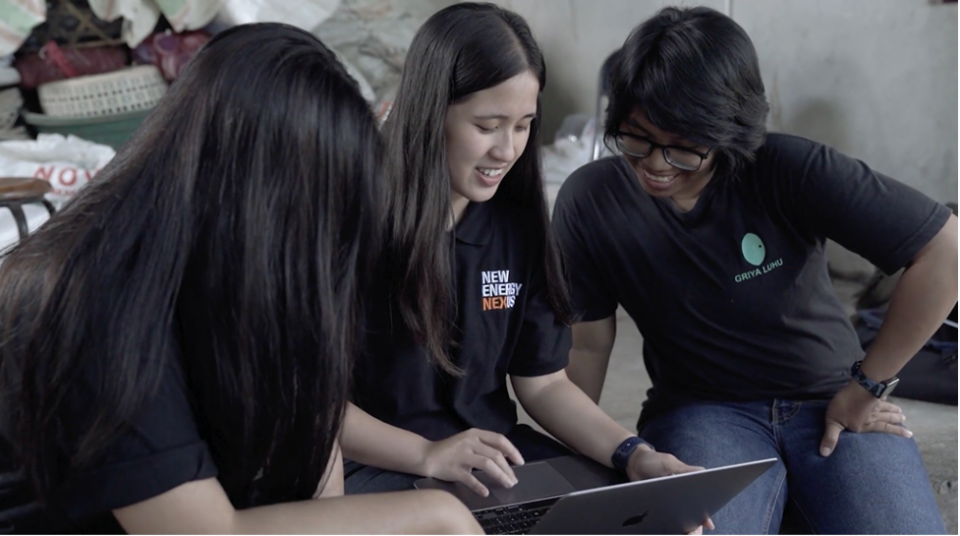Oakland, 26 de marzo de 2024 – California está captando sólo el 2.4% de los empleos previstos en las operaciones planificadas en la cadena de suministro de baterías de litio de la nación, y la mayoría van a parar a estados que ocupan puestos bajos en términos de protección laboral, salud y seguridad de los trabajadores, y leyes salariales.
Las conclusiones publicadas hoy en un nuevo informe de New Energy Nexus, en colaboración con el Instituto para la Transformación Social de la Universidad de California en Santa Cruz, y socios del Centro Laboral de la Universidad de California en Berkeley, detallan cómo la propia iniciativa estatal del “Valle del Litio” en la región del mar Salton no aprovechará el creciente auge del litio, donde menos del 1% de los empleos están asociados con la extracción de litio. Se prevé que la inmensa mayoría de los más de 100.000 nuevos empleos serán en la fabricación de baterías y vehículos eléctricos (VE)..
El informe – “Generando prosperidad: Creando una cadena inclusiva de suministro de litio en la región del mar Salton de California” – analiza los datos de empleo en la cadena de suministro a través de una plataforma interactiva en línea, “Lithium Battery Supply Chains of North America,” (Cadenas de suministro de baterías de litio de Norteamérica), que por primera vez traza un mapa de los empleos en relación con los indicadores laborales, climáticos y de justicia económica. También recomienda cómo la región podría captar más empleos “de alto nivel” y beneficios comunitarios de la extracción de litio con un mayor enfoque político, inversiones públicas específicas y asociaciones sólidas entre la industria, los trabajadores, las comunidades y las tribus.
“Las decisiones que se tomen ahora determinarán si el auge de las baterías de litio será una carrera hacia la cima o una carrera hacia el fondo”, afirmó Rebecca Lee, coautora del informe y Directora General de New Energy Nexus California.
“California ha sido líder mundial en innovación de vehículos eléctricos y baterías, y para mantenerse a la vanguardia, necesita apoyar a las empresas que tomen la vía alta, y que se queden y fabriquen sus tecnologías en el estado. Esto podría ser un modelo global de prosperidad compartida, generando empleos que sustenten familias y beneficios para las comunidades locales, y al mismo tiempo descarbonizando la economía.”
La región del mar Salton en California es un rincón del estado en el que no se ha invertido lo suficiente, y donde una cuarta parte de la población total y la mitad de la población nativa americana de la región vive por debajo de los índices de pobreza. También alberga algunas de las mayores reservas de litio del mundo, lo que ha dado lugar al nombre de “Valle del Litio”.
La Ley Bipartidista de Infraestructuras y la Ley de Reducción de la Inflación crearon importantes incentivos financieros para la producción nacional de baterías de litio y vehículos eléctricos. Crear una cadena nacional de valor del litio – desde el procesamiento, la fabricación de baterías y el reciclaje- podría crear buenos empleos, nuevas oportunidades comerciales y beneficios significativos para las comunidades locales.
“Tenemos que asegurarnos de que los empleos en la extracción de litio en el condado de Imperial sean buenos empleos, pero un beneficio mayor para la región podría surgir de la ubicación conjunta de la fabricación de baterías y vehículos eléctricos”, afirmó Chris Benner, coautor del informe y profesor y director de la facultad del Instituto para la Transformación Social de la Universidad de California, Santa Cruz.
“Las empresas de baterías y vehículos eléctricos que se instalen aquí obtendrían beneficios en términos de reputación y de mercadotecnia por estar vinculadas a una de las fuentes de litio más limpias del planeta, así como un acceso cercano a un gran mercado de consumidores concienciados con el medio ambiente – la base de consumidores de vehículos eléctricos más grande del país.”
Conclusiones clave:
- California es actualmente el núcleo de la industria nacional del vehículo eléctrico, con aproximadamente el 19% de los empleos existentes en toda la cadena de suministro de litio y vehículos eléctricos, es con diferencia el mayor porcentaje de todos los estados.
- California, Arizona y Nevada representan casi un tercio (31%) de los empleos en toda la cadena de valor de las baterías de litio y los vehículos eléctricos, pero solo el 10% de las nuevas inversiones previstas. (1).
- Kentucky, Tennessee, Alabama y Georgia representan en la actualidad aproximadamente el 16% del empleo total existente a lo largo de la cadena de valor, pero representan casi el 34% de los empleos previstos en nuevas instalaciones. Estos estados ocupan los últimos puestos en cuanto a protección laboral, salud y seguridad y salarios de los trabajadores..
- De los más de 150.000 empleos existentes en la cadena de valor del litio en EE.UU., el 43% corresponde a la fabricación de VE, el 26% a la fabricación de los componentes, baterías y paquetes de pilas, y solo el 6% de los empleos corresponde a la minería o a la extracción de minerales críticos.
- En la región del mar Salton, el número de empleos directos derivados de la extracción directa de litio será relativamente modesto: unos pocos cientos de empleos al principio, que aumentarán a unos 2.000 empleos en curso cuando se proyecte su pleno desarrollo dentro de muchos años.
- La gran mayoría de los empleos relacionados con el litio de la región del mar Salton se crearán a lo largo de la cadena de valor: unos 1.600 empleos en la fabricación de cátodos, 20.000 empleos en la fabricación de pilas y baterías, y más de 100.000 empleos en la fabricación de vehículos eléctricos (2). Actualmente no existen acuerdos para traer estos empleos a la región del mar Salton, y mucho menos para garantizar que estos empleos sean de alta calidad o se destinen a residentes locales (3).
Noemí O. Gallardo, Comisionada de la Comisión de Energía de California: “La visión del Valle del Litio tiene el potencial de proporcionar una tremenda oportunidad económica que eleve simultáneamente a la industria, los trabajadores y los residentes. Basándose en los esfuerzos estatales existentes, las recomendaciones descritas en este informe pueden ayudar a hacer realidad esta posibilidad e impulsar la región del mar Salton.”
Brigette Browning, Secretaria General Ejecutiva del Consejo Laboral de los Condados de San Diego e Imperial: “Este informe muestra que California debe consolidar urgentemente su liderazgo en energías limpias y asegurarse de captar y conservar empleos que sustenten familias en el auge de las baterías de litio. Tanto en la fase de construcción de los proyectos como en las operaciones y el mantenimiento en curso, el sector debe apoyar buenos empleos sindicales y vías profesionales en los nuevos empleos de las industrias verdes, especialmente para los residentes locales.”
Sanjiv Malhotra, fundador y director ejecutivo de Sparkz: “Hemos visto un verdadero valor en adoptar el enfoque de “alto nivel” en el Valle del Litio, enfocándonos en la innovación, invirtiendo en nuestra fuerza laboral y generando buenos empleos. Estamos orgullosos de asociarnos con el sindicato United Auto Workers para asegurar al trabajador estadounidense un lugar en la nueva economía de la energía, y al mismo tiempo desarrollar la cadena de suministro de baterías a nivel nacional.”
California podría proporcionar un modelo global del desarrollo económico inclusivo y favorable al medio ambiente de las cadenas de suministro de litio y baterías. Las recomendaciones incluyen:
- Apoyar el desarrollo de la fuerza laboral “de alto nivel”. Esto incluiría imponer condiciones para la financiación pública de las empresas, basándose en Acuerdos de Beneficios Comunitarios negociados, así como la capacitación de trabajadores de la construcción, obreros y profesionales y técnicos en el condado de Imperial.
- Reforzar la “canalización de la innovación a la implementación”: proporcionar beneficios a las empresas de ” alto nivel” que desarrollen y fabriquen tecnologías en el Estado. Esto debería incluir un aumento en la financiación a organizaciones de apoyo para emprendedores de energías limpias que apoyan vías de alto nivel para la comercialización de empresas emergentes.
- Invertir en infraestructuras locales. Esto incluye infraestructuras físicas y sociales como servicios de salud pública, transporte público, viviendas resistentes al cambio climático y restauración medioambiental relacionada con la gestión del mar Salton y la calidad del aire.
- Abordar los obstáculos a la concesión de permisos. Por ejemplo, se podría acelerar la obtención de permisos para proyectos que hayan formalizado acuerdos y cuenten con el apoyo de las comunidades.
- Transparencia de la cadena de suministro de baterías. Deben existir mecanismos que controlen, midan y respeten los estándares medioambientales, laborales y de la calidad del aire, tales como el Pasaporte Global de Baterías.
El informe y el mapa Lithium Battery Supply Chain (Cadena de Suministro de Baterías de Litio) cuentan con el apoyo de una subvención de la Fundación James Irvine, y representan la culminación de más de un año de investigación, que incluye aportaciones de una amplia gama de partes interesadas de los sectores laboral, comunitario, industrial, público y tribal.
Notas para los redactores:
Resumen del informe (en español)
(1) California ocupa el primer lugar, Arizona el 18 y Nevada el 20, según el Índice de Mejores Estados para Trabajar de Oxfam. Best States to Work Index.
(2) Este cálculo se basa en la cantidad anual de litio extraído de todas las plantas geotérmicas existentes y utilizado para fabricar baterías
(3) Al menos dos empresas promotoras han firmado acuerdos de proyectos laborales (PLA por sus siglas en inglés) con sindicatos del sector de la construcción para la fase de construcción de los proyectos.
Acerca de New Energy Nexus:
New Energy Nexus es una organización sin fines de lucro que lucha por una economía 100% de energía limpia para el 100% de la población en el menor tiempo posible. Con 20 años de experiencia, ofrecemos aceleradores, financiación y capacitación de primera clase para ayudar a diversos emprendedores a desarrollar una transición energética limpia, más justa y equitativa..
New Energy Nexus comenzó en California en 2004 y ahora opera programas en Nueva York, China, India, Sudeste Asiático, África Oriental y Occidental, y Australia. Desde 2016, hemos apoyado a 1.200 empresas emergentes, más de 8.000 emprendedores y movilizado más de 3.700 millones de dólares en inversiones. Más información en: www.newenergynexus.com/california
Acerca del Instituto para la Transformación Social de UC Santa Cruz
El Instituto, integrado en la División de Ciencias Sociales de UC Santa Cruz, el Instituto apoya la investigación innovadora que cambia al mundo. El instituto es un centro intelectual y social crítico, que conecta a académicos de toda la UC Santa Cruz y a socios de fuera de la universidad, creando soluciones basadas en la investigación de urgentes problemas sociales, medioambientales y políticos del mundo. La investigación del instituto tiene como objetivo comprender y transformar las causas sistémicas subyacentes de los problemas en estas áreas, y aporta la experiencia basada en la investigación y los recursos de UC Santa Cruz a colaboraciones con otras entidades comprometidas con la creación de sociedades locales y globales que se basan en la equidad, el acceso y las oportunidades para todas las personas, la regeneración del medio ambiente y la revitalización democrática. https://transform.ucsc.edu/
Acerca del Centro Laboral de UC Berkeley
El Centro de Investigación y Educación Laboral de UC Berkeley es un programa de servicio público y divulgación del Instituto de Investigación sobre Trabajo y Empleo. Fundado en 1964, el Centro Laboral lleva a cabo investigación y educación sobre temas relacionados con el trabajo y el empleo. Los currículos del Centro Laboral y las capacitaciones de liderazgo sirven para educar a una nueva generación diversa de líderes laborales. El Centro Laboral lleva a cabo investigaciones sobre temas como la calidad del empleo y el desarrollo de la fuerza laboral, y trabaja con sindicatos, gobiernos y empleadores para desarrollar programas y perspectivas políticas innovadoras. El Centro también ofrece una importante fuente de investigación e información sobre los sindicatos y la evolución de la fuerza laboral para estudiantes, académicos, legisladores y el público en general. https://laborcenter.berkeley.edu/
Contacto para los medios de comunicación:
Tristan Tremschnig, Director de Global Communications, New Energy Nexus, correo electrónico: tristan.tremschnig@newenergynexus.com (con sede en San Francisco)

